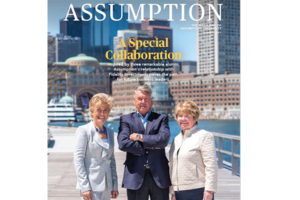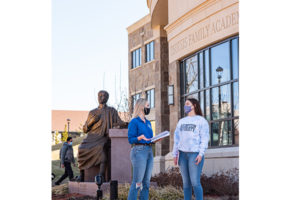Richard Bonanno, Ph.D.
Professor of Italian
 Education
Education
Ph.D., Rutgers University
M.A., Rutgers University
B.A., University of Massachusetts at Amherst
Classes Taught at Assumption
Boccaccio’s Decameron
Dante’s Comedy
Introduction to Italian Literature Italian Cinema
Italian Civilization and Culture Italian Language and Culture,
Levels 1-V
Why is learning a foreign/Romance language like Italian still a necessary or useful skill to have?
Learning the structure and mechanics of a modern or classical language has tremendous value. To study a language is to explore another reality and engage in an ongoing process of humanization. In my discipline, the literature, art, history, and culture of Italy are as meaningful as the language. Learning Italian in such a multidisciplinary way opens our eyes to an extraordinary tradition and allows us to better understand and reflexively appreciate our own language and culture. Verbal expression is a particularly reined human trait, and the ability to connect with others in their native language makes us more distinguished human beings.
What is something someone might not know about you?
I am pretty much an open book, as they say. Perhaps I have one secret: My heart is shaped like an eggplant; I have x-rays to prove it.
What’s with the roller skates?
What do you do when you can’t locate your wing tips? You search and search until you realize you’re running late for your photo shoot, but you could move pretty quickly in roller skates. Then you serendipitously remember one of your favorite Italian singers, Enzo Jannacci, whose LP Foto ricordo features him, his wife, and his son wearing roller skates in a family portrait. Great record. Greater record cover. Homage.
What ignited your passion for teaching Italian?
I became interested in teaching Italian for purely selfish reasons. Having completed my undergraduate major in Italian, I wanted to live in Italy and learn more, so I moved to Milan, where I taught English, worked as a translator and interpreter, and did all kinds of odd jobs in order to pay the bills. I had intended to stay for a year and then attend law school in the U.S., but my curiosity never abated. More interested in learning than teaching, I enrolled at Rutgers, where I was required to teach one course per semester as a Ph.D. student. Determined to excel in the classroom, I told myself, “Just imagine that you’re a student in your own class. What would you like to learn? How should the material be delivered so that you might learn as much as possible while also enjoying yourself?” I am the most selfish teacher you will ever meet; my expectations are also quite high.
You helped establish the Rome Campus. Why is it important for Assumption to have a presence in a city most consider the birthplace of the liberal arts?
We do much good by exposing our students to realities beyond campus. Volunteering in Worcester or participating in a SEND trip provides transformative learning experiences. Studying in Rome is similar, but one substantial advantage is that the curriculum is steeped in the liberal arts. After class, go for a walk and experience more history, art, and culture, where you’re bound to bump into someone who speaks Italian. Perhaps you could learn something from them.
What is your favorite Italian phrase?
Vorrei le melanzane alla parmigiana, per favore. I love eggplant, especially fried eggplant prepared with tomato, mozzarella, and basil and then baked, which is called “eggplant parmesan.” This may not be helpful if you’re looking for a restroom or have lost your passport, but if the dish has been prepared properly with fresh, high-quality ingredients, then you’re in for a treat. Neapolitans prepare it best.


